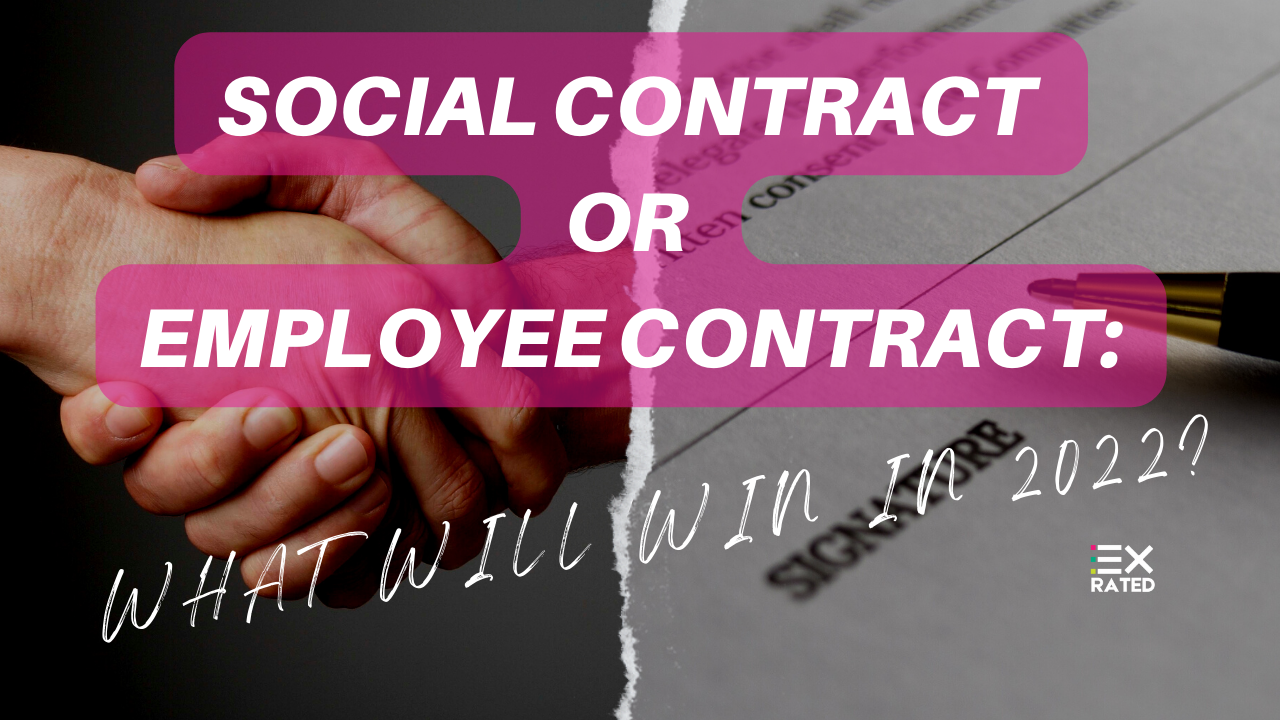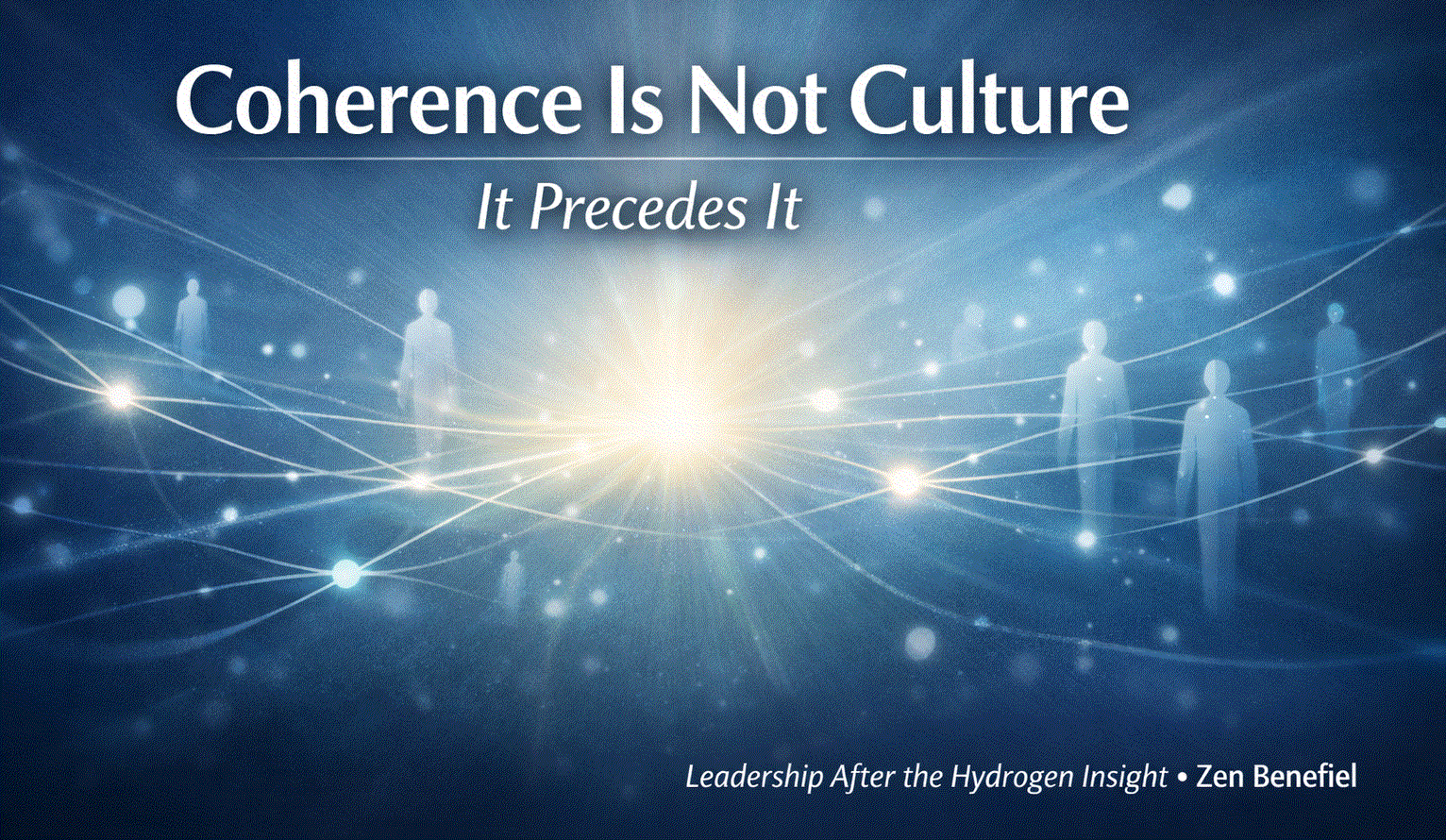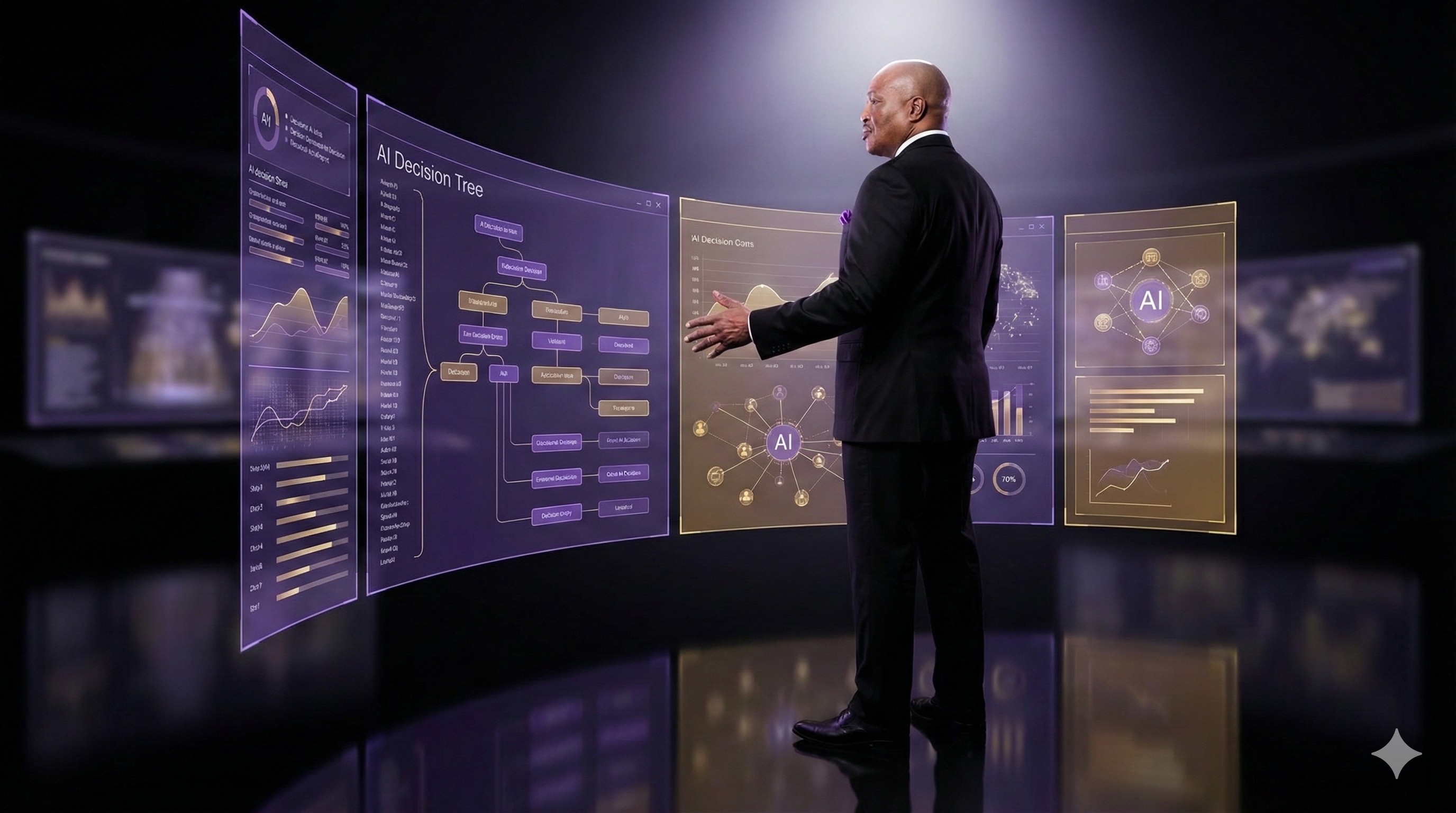Jan30

How much of communication is what’s left unsaid? A lot of our daily conversations and discussions centre around norms, assumptions, and ideas—it’s not always just based on what is explicitly said.
This plays into the term 'social contract,' an idea that’s been floating around in the workplace and future of work conversations for the last decade or more. It’s a term for the unspoken agreement between two people, in this case, an employer and an employee.
A social contract might be the reason you answer your emails after work hours or wear one outfit to work over another. There are behaviours that each employee does—outside of any formal employee contract—that are determined by a social contract and workplace norms.
But as we move into an after-COVID (AC) era, are employees still okay with this? Will a social contract hold its weight against a formal employee contract?
I'm talking about a social contract within the workplace, but it goes much deeper than that. The Modern Social Contract Theory comes from some of the great philosophers, including Thomas Hobbes, John Locke, and Jean-Jacques Rousseau.

The main point of the social contract theory is best understood as a relationship between individuals and the community that they live in. This can be the community as a country, a workplace, or general humanity.
The social contract theory is most often applied when discussing the authorities and powers of the state. It is defined as: 'an actual or hypothetical agreement among the members of an organised society or between a community and its ruler that defines and limits the rights and duties of each.'
Will Cairns discussed the social contract theory in his recent article, exploring the relation between it and the current pandemic. With all the discussions surrounding vaccinations, wearing masks, and other pandemic 'new norms,' there are questions around the balance of individual rights and community responsibility. He poses two questions:
Now, I’m not here to fill your feed with more talk about COVID-19. But the reality is that it's exactly because of this pandemic that we are, collectively, exploring these ideas. And I can’t help but wonder—are these questions ones we also need to ask of our workplace?
Consider replacing 'the state' with 'the employer.’ Let’s ask the questions again:
These are the questions on many employees’ minds. After nearly two years of constant pivoting, working from home, dealing with pandemic restrictions… It’s been a lot. And employees are wondering: what am I doing this for? Am I willing to sacrifice my freedom, time, and values for my employer?
The pandemic has prompted many employees to consider what they are willing to give up for their employer. There are a few reasons for that:
All of these factors—along with others such as the labour shortage—are wrapped up in the big conversation around the Great Resignation. I wrote about the Great Resignation before, questioning whether it was a real phenomenon or a bit hyped-up. However, in any case, the conversations and concerns around it are very much real.
Many employees are leaving their jobs to pursue side hustles and the gig economy.
Many employees are switching industries after losing their long-held positions.
And many employees are questioning what they are willing to sacrifice for the sake of their employer.
And like never before, employees are actually interested in the fine print of their employment contracts. They want to know: what am I entitled to, what does my employer stand for and what will be asked of me outside of the formal contract?
So what does all of this mean? The social contract—unspoken norms and rules of a workplace—is back on the lips and minds of many people. Just as the pandemic has shifted many things about our daily lives, it’s also shifted the idea that workplaces can demand certain things, 'just because,' and expect their employees to adhere to it.
The social contract will impact our workplaces through three avenues:
There are other possible outcomes too. Some may simply quit their jobs in pursuit of another opportunity, including self-employed options.
And then there are those who will stay put. The social contract is unlikely to completely disappear and may have a stronghold over some people. We’ve seen this in action over the pandemic: people have a renewed sense of what it means to belong to a community of individuals, and how certain things can be expected from the power-that-be to be part of said community. Some rebel against the very idea, but others thrive under community expectations.
There’s no singular answer or outcome that I can give about what might happen in the coming months and years. I can’t say, either, what will 'win' in a contest between social and employment contracts.
But one thing is certain: the AC era is going to look dramatically different than anything we’ve seen before and the social contract needs to be re-evaluated to build a strong employee experience and attract top talent.
Keywords: Culture, Customer Experience, Future of Work
 Coherence Is Not Culture — It Precedes It
Coherence Is Not Culture — It Precedes It Death of the Data Silo
Death of the Data Silo Capital Follows Electrons: How Electrification Is Driving Growth
Capital Follows Electrons: How Electrification Is Driving Growth Execution Is Cheap Now. Experience Is Everything. The BRAVE Upgrade for the Agentic AI Era
Execution Is Cheap Now. Experience Is Everything. The BRAVE Upgrade for the Agentic AI Era The 12 Best Countries for Retirees – Affordability & Taxation
The 12 Best Countries for Retirees – Affordability & Taxation